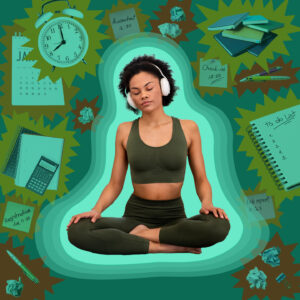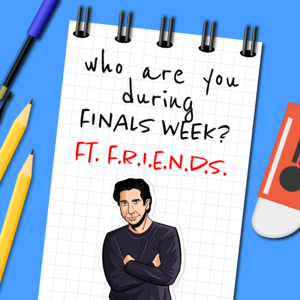An unapologetic state of mind
I was in bed in my apartment in Edinburg when a knife was digging into my chest, but I couldn’t find it. My throat closed, mouth dry, voice trembled, and I felt like I lost my marbles. I used YouTube or a video game to distract from the anxiety; however, it made multiple visits. I wrote my feelings and listened to calming music, but the hard heartbeat overwhelmed my ears. I wanted to call a friend—or anyone—but my head convinced me that I am alone with no evidence. Eventually, my body crashed from the drop of adrenalin and the numbing feeling sets in. That’s my cue to go to sleep and hope for tomorrow.
The next day came and I woke with a headache from the overthinking. I ignored it by taking pain relieving, over-the-counter medication by Equate, but the memories of feeling fragile are raw. I wanted to vent to someone, but I felt like a burden. With a deep breath, I performed my day as best as possible, although feeling like glass. I was washing dishes from brunch when a friend called me regarding the results of the 2020 Election. She told me Democratic challenger Joe Biden became the president-elect, alongside Vice President-elect Kamala Harris. The news shocked me. My eyes watered and I dropped to the floor. I checked The Washington Post, The Associated Press and 270towin.com to see the results because I was in such disbelief.
Although the election was a factor of anxiety—being a non-binary, person of color and LGBTQ+—I often can’t identify why I get anxious. Now, some might say to “get over it.” I argue that the statement is harmful because it dehumanizes anxiety. I felt misaligned by the news that I had an anxiety disorder back in 2018. I felt weak and defeated; it made it harder for me to connect with peers. Maybe I felt like that because I needed to be in control of my mind. Since I lost it, I got scared. I know that I have a support group, but my mind convinced me that it’s all a lie. That’s where I felt crazy.
“I don’t want to walk on eggshells around you” is a phrase I’ve heard and been told. It solidifies my fears and gives the foundation to feeling unwelcome. Now, there isn’t a need to become an expert in mental health to offer support. Saying “I’m here” is valuable for those with an anxiety disorder, especially for college students. According to a 2019 World Health Organization study of about 14,000 first-year college students, 35% of participants have a mental illness. A National Alliance on Mental Illness survey found that 64% of students dropped out of college for mental health reasons.
When I became 21 years old, a radical idea entered my head: Be unapologetically yourself. I cannot recall where or when I heard it, but it stuck.








